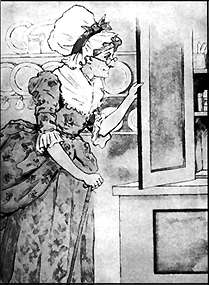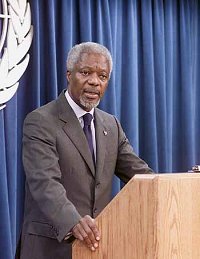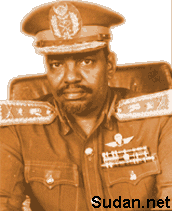Sudan is ready to attend Darfur peace talks under joint United Nations-African Union mediation to resolve a conflict that has driven 2,5-million people from their homes, its foreign minister said on Monday.
The rebels have split into more than a dozen groups since a peace deal last year signed by only one of three rebel negotiating factions. Many leaders have lost control of their commanders on the ground, creating a chaotic and dangerous environment for aid workers and peacekeepers.
"Any time they want the peace talks to start, we have always been ready," Foreign Minister Lam Akol told reporters. "The problem is with the other side."
The AU-UN initiative hopes to have all factions lined up to begin talks by about August. The former UN humanitarian chief in Sudan, Manuel Aranda da Silva, has said the rebels do not have to unite, but should have a unified position before talks.
Aid workers involved in the world's largest humanitarian operation say an agreement is a priority to create an effective ceasefire. Some have worried about slow progress to bring all factions to the table.
One aid official, who declined to be named, said international mediators should be based in Khartoum to be most effective, not just jetting in and out on short missions.
UN special envoy Jan Eliasson, a Swede, appointed Finn Pekka Haavisto to assist him. But Haavisto, like Eliasson, has decided to be based outside Sudan.
"They need to be based here to fully engage in this process and to understand all the stakeholders," said the aid worker.
Peacekeeping plan
International experts estimate 200 000 have died in more than four years of conflict in Darfur, violence Washington calls genocide. Khartoum rejects the term and puts the death toll at 9 000.
The conflict flared when mostly non-Arab rebels took up arms in early 2003 accusing the central government of neglecting the remote, arid Western region. Khartoum mobilised militias to quell the revolt.
The UN Security Council visited Khartoum on Sunday and said it was satisfied that Sudan had unconditionally accepted a joint UN-AU peacekeeping force of at least 20 000 troops and police and would recommend to the general assembly to fund the mission.
Foreign Minister Akol said the meeting was constructive and that all sides were in agreement, even over command and control of the force, which had been unclear.
"The commander is African," Akol said. "The [command and control] structures that are followed by the UN are the ones that we have agreed would be adopted by the AU."
"So we say the command and control structures are the UN," he added.
Diplomats said China, India and Pakistan had indicated interest in contributing to the force. Akol said those nations were friends of Sudan, but that the final decision would be up to the UN and AU.
"They have expressed interest within the hybrid operation," said Akol. "All of them are friends to Sudan -- I don't think we have anything against them."
He added the UN contingents of the joint force would wear blue helmets and the Africans, green. But all the troops would wear green AU badges. |
 At least seven people have been killed in fighting in south Sudan's Upper Nile state when soldiers attacked a rival militia, a military spokesman said on Sunday.
At least seven people have been killed in fighting in south Sudan's Upper Nile state when soldiers attacked a rival militia, a military spokesman said on Sunday.
 KHARTOUM - Former south Sudanese rebels rejoined the national government on Thursday, two months after walking out because of disputes over the implementation of a peace deal that ended two decades of war.
KHARTOUM - Former south Sudanese rebels rejoined the national government on Thursday, two months after walking out because of disputes over the implementation of a peace deal that ended two decades of war. KHARTOUM -
KHARTOUM -  HALIFAX, Nova Scotia (AP) - Secretary of State Condoleezza Rice said she told Sudan on Monday there is no chance of improved relations with the United States if it flouts the world's demand for U.N. peacekeepers in Darfur.
HALIFAX, Nova Scotia (AP) - Secretary of State Condoleezza Rice said she told Sudan on Monday there is no chance of improved relations with the United States if it flouts the world's demand for U.N. peacekeepers in Darfur. KHARTOUM, Sudan (AP) - The Sudanese government told a high-level Security Council delegation Tuesday that it would not give immediate approval for a U.N. peacekeeping force in Darfur, but was willing to keep talking about the takeover from African Union troops.
KHARTOUM, Sudan (AP) - The Sudanese government told a high-level Security Council delegation Tuesday that it would not give immediate approval for a U.N. peacekeeping force in Darfur, but was willing to keep talking about the takeover from African Union troops. UNITED NATIONS - UN chief Kofi Annan on Tuesday deplored Sudans decision to bar UN humanitarian coordinator Jan Egeland from visiting its strife-torn Darfur region. The Secretary General regrets that .... Jan Egeland was not permitted by the Government of Sudan to visit Darfur, Annans spokesman Stephane Dujarric said in a statement.
UNITED NATIONS - UN chief Kofi Annan on Tuesday deplored Sudans decision to bar UN humanitarian coordinator Jan Egeland from visiting its strife-torn Darfur region. The Secretary General regrets that .... Jan Egeland was not permitted by the Government of Sudan to visit Darfur, Annans spokesman Stephane Dujarric said in a statement. Sudan rejects US-backed efforts to have UN peacekeeping troops take over from African Union troops in the countrys troubled Darfur region, Foreign Minister
Sudan rejects US-backed efforts to have UN peacekeeping troops take over from African Union troops in the countrys troubled Darfur region, Foreign Minister